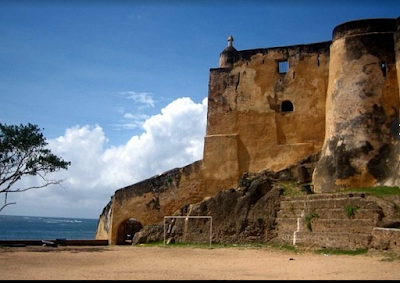Jeff–Saturday
A half-dozen years ago I wrote a blog titled, “An Open Letter to Mykonians” expressing my concern over the direction I perceived my adopted island home was headed. By then I’d written a trilogy of books set on Mykonos, each separated by five years from the other. One covered the spirit of old Mykonos, another Mykonos on the verge of existential change, and a third after “the Fall.”
By the time I wrote that post, Mykonos had become a summertime island of 24/7 glitz, with its physical past rapidly disappearing amid a relentless onslaught of construction vehicles, and a cultural past all but abandoned to an agenda of offering greater pleasures in the unrestrained pursuit of greater profits.
The island was fast becoming a place without order. Yet, based upon a deep civic pride that long had united Mykonians in common cause when needed to protect their island, I’d hoped that bedrock dedication to their island’s spiritual core might somehow prompt them to address its new challenges.
Every core, though, needs a compass to remain firmly on course, and recent intoxicating times had rocked Mykonos off center. The island was now steered by external forces driving an essentially captive community in directions most islanders neither fully appreciated nor understood. Mykonians had welcomed the mesmerizing benefits, while largely ignoring or feeling helpless to battle the drawbacks rapidly erasing its old ways and values.
Mykonos is no longer what it once was. In many ways that’s good for the Mykonians. But in other ways it’s not. It has become the most celebrated tourist draw for the legendary Greek Summer Island Experience. It’s also become a target of deep criticism for the media.
This past week an article by Ilias Bellos appeared in “Ekathimerini” (Greece’s paper of record) titled, “Mykonos falls victim to its own success,” citing statistics supporting a dramatic falloff in airplane seat bookings to the island, compared to a significant rise in those same statistics for Greece as a whole.
Here's what Mr. Bellos, has to say about what that all means. It’s an analysis that should not surprise any Mykonian, except insofar as to underscore how their treasured past and descendants’ future is being sacrificed to the present.
So, what is ailing Mykonos? Is it the overtourism, high prices, inadequate infrastructure and rising crime that come as a result of resounding success at so many international destinations?
“Mykonos has clearly been in a correction phase since last year, resulting from the extremely demanding pricing policies of all of the tourism businesses on the island, as well as from defamation by visitors and the inevitable mistakes,” a hotelier with a significant number of units at this and other summer destinations told Kathimerini on condition of anonymity.
“When the magnifying glass of social media is on you for all the right reasons, it will also draw an equal amount of attention, if not more, to the bad things,” said another businessman who works on the island.
Both are, nevertheless, optimistic that this year’s performance will not be as bad as the data so far indicate, but also that a self-correction in the private sector will lead to a rebound.
Many more believe that the Mykonos brand is too strong to fail and can ride out what may be nothing more than a short-lived crisis. Where is the negative sentiment coming from, though? It is the result of a combination of factors. In one case, for example, global influencer Gigi Hadid was burgled while holidaying on the island in 2019 and advised her millions of followers not to travel to the Greek island.
Inadequate infrastructure is another issue, as many holidaymakers have witnessed in previous years when the island’s waste management system overflowed. Crime, particularly robberies, is another problem that has been mentioned as contributing to Mykonos’ declining allure.
On the upside, satisfaction with Mykonos’ hotel infrastructure remains among the highest in the Mediterranean, according to INSETE’s findings.
Negative publicity and a drop in demand for traveling to the island is, therefore, also interpreted as a reproof for the services offered beyond the hotels, such as at certain beach bars and restaurants or stores. “One bad apple can spoil the entire barrel,” said one top-league Greek hotelier who believes Mykonos is suffering from a reputation problem.
Others think the dip is the inevitable result of overtourism and high prices. “The phenomenon is not endemic to Mykonos. We have seen the same thing happen at other famous destinations, such as Spain’s Ibiza, for example,” said another hotelier on the island who, like the others, spoke to Kathimerini on condition of anonymity.
“A handful of businesspeople, restaurateurs and beach club managers did not pay as much attention as they should have to the standards of the services they offer and focused only on making as much money as possible,” the same hotelier said, adding that “in today’s world, it is only a matter of seconds before every oversight and incident is made known across the world because of social media.”
Outrageously high bills, nontransparent pricing policies, poor service and security matters are among the problems that get a lot of publicity on social media platforms.
“Like other destinations before it, Mykonos has fallen victim to its success, though temporarily,” a local businessman argued, arguing that the arrival of the super-rich set on the island brought its followers, but also criminal elements. Pickpockets, thieves slipping expensive watches off people’s wrists as they stroll around packed Matogianni Street or party at a nightclub, but also robbers, who break into people’s rooms and villas to grab what they can regardless of whether the tenant is in, and serious drug rackets are the most frequent subject of complaints about rising crime on the island.
This is also attributed to the lack of policing, which became widely apparent last year and prompted law enforcement authorities to dispatch a special unit to Mykonos.
The initiative, however, was geared more toward protecting state workers from violence than cracking down on crime more generally.
“Mykonos is a victim of defamation but it will bounce back stronger because the businesspeople on this island are serious professionals who have successfully diagnosed the problem and are doing what is necessary to make it right,” an economist specializing in tourism told Kathimerini. “Self-corrective initiatives are already under way and the serious professionals and healthy businesses are exerting pressure on those who fail to understand what needs to be done.”
This optimism for Mykonos’ future is shared by many Greek and foreign investment funds and luxury hotel management firms which are in the process of carrying out major investments, worth hundreds of millions of euros, in new comprehensive tourism complexes.
For others, overdevelopment and burgeoning construction are a key part of the problem.
Either way, no one can deny that the idealized image of Mykonos with its sugar-cube houses, picturesque windmills and colorful fishing boats bobbing on the sparkling blue waters is at risk of being lost in the throngs of visitors who descend on the island each year.
What’s more, many of these visitors are day-tourists who contribute almost nothing to the tourism economy’s turnover.
According to sources, efforts are indeed under way to set a cap on the number of cruise ships and cruise passengers stopping at Mykonos.
We shall see what we shall see. Or not.
–Jeff
Jeff’s Upcoming Events
CrimeFest, Bristol UK
Panel THURSDAY, MAY 9, 2024 @ 17:00
“Overstepping the Mark: Abuses of Privilege and Power” with
Ajay Chowdhury, Alex North, Kate Ellis, Jeffrey Siger, Sam Holland (Moderator)
Panel FRIDAY, 10 MAY 10 @ 17:10
“What a
Thrill: Page-Turners and Cliff Hangers” with
Chris Curran, Antony Dunford, Charles Harris, Christine Poulson, Jeffrey Siger
(Moderator)



























































